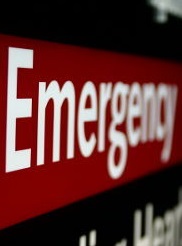RACGP wants triage fee change
 Doctors say money paid for patients who leave the ER could be better spent elsewhere.
Doctors say money paid for patients who leave the ER could be better spent elsewhere.
Under federal funding arrangements, Tasmania’s hospitals have to charge the Federal Government for patients who leave emergency rooms without seeing a doctor.
Around 4,300 patients were triaged at Tasmanian hospitals but left without seeing a doctor in the past year.
The Royal Australian College of General Practioners (RACGP) says that money could be spent more usefully, and has suggested hospitals give patients a voucher to use on health care elsewhere.
“It matters because the taxpayer is paying and no clinical treatment has been received,” the RACGP’s Dr Sebastien Seidel said.
“That money is better spent supporting general practioners so they can see their patients.
“If the hospital's emergency department are unable to see their patients because they are too busy and the department is overcrowded, why don't you give patients a voucher so they can drive to see their GP or contribute to out-of-pocket fees which are increasing — particularly in Tasmania?”
But the Nurses Federation wants the money to stay where it is.
“Our nurses are providing care to the patients, every patient, that presents to the emergency department across the state whilst they are in the emergency department, so it's important that funding remains where it is,” spokesperson Emily Shepherd said.
“I think it's important to highlight that any member presenting to the emergency department to seek medical attention doesn't just receive that medical attention once they enter into the emergency department itself physically onto a bed.”
The Premier claims the Government is working to cut waiting times.
“We've actually seen improvements at the ED, we're at a lower rate than in previous months,” Mr Hodgman said.
“We're redeveloping a hospital, we're redesigning the health system. When the Royal Hobart Hospital is up and running it'll have 250 additional beds, so it will reduce a lot of the strain on our health system.
“I hope Tasmanians feel they are able to access good health care as soon as possible.”








 Print
Print